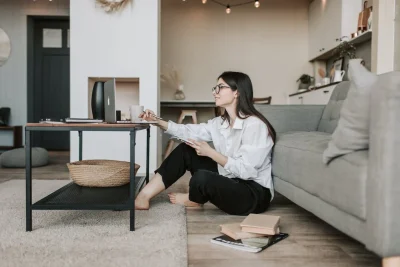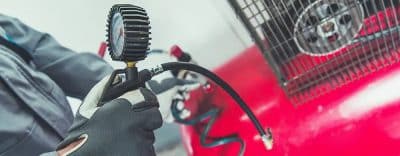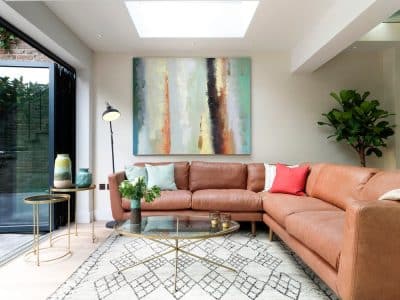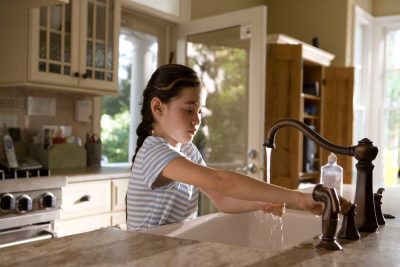
While slashing energy bills and boosting green energy sounds great, diving into solar panels isn’t straightforward.
You’ve got a whole bunch of financial, structural, and even legal stuff to think about before leaping.
Even with all these perks, solar panels might not be the best bang for your buck.
They come with hefty upfront costs and sometimes you even need to do major tweaks to your home.
Plus, the savings?
Well, they can be hit or miss, depending on how sunny it is where you live.
However, some states, like Connecticut, offer free solar panels. The savings will be lower in this case, but it’s still a solid option.
So, if you live in any state with solar incentives, see if you qualify for free solar panels from the government. Solar panels can be definitely worth it in this case.
Key Takeaways
- Solar panels may not be worth it due to high upfront costs. Ongoing expenses like maintenance and insurance can further reduce their financial benefit.
- The initial cost averages around $20,000. This includes not only the panels but also necessary equipment like inverters and mounting systems.
- Additional costs such as installation, maintenance, professional labor, insurance, and potential roof repairs increase the total expense.
- Solar panels don’t fully eliminate electricity bills. You still rely on grid power during nights and cloudy days, keeping some costs.
- Solar panels may not boost home value as expected. Some buyers aren’t drawn to them, and property liens can reduce your equity when selling.
What Are the High Upfront Costs of Solar Panels?
1. The Initial Investment Required for Solar Panels
Setting up solar panels is a big investment right off the bat.
For a lot of families, the cost to install a full system isn’t just pocket change—it can be pretty steep.
A solar system is not just the panels you’re buying; there are also essential bits and pieces like inverters and mounting systems that you need to make everything work.
All this adds up, and on average, you might be looking at about $20,000 to get started.
This price tag comes from the need for high-quality solar cells and the tricky business of fitting the system into your home’s existing electrical setup.

2. Additional Costs Beyond Installation
Beyond the initial cost of the panels and hardware, there are a few more expenses that can add up:
- Installation Fees: Getting those panels onto your roof isn’t a DIY job. It needs professionals who know what they’re doing, which means labor costs. These costs can vary a lot, depending on how your roof is shaped and how your home is wired.
- Maintenance Costs: Thankfully, keeping your solar panels in good shape doesn’t usually cost too much. You’ll need to clean them now and then, and maybe fix or replace parts like inverters or batteries over time, especially if you have a backup system.
- Insurance and Warranties: If you live somewhere with rough weather, you might need extra insurance for your panels. This is because not all home insurance policies cover damage to solar setups, which could leave you facing big bills if a storm hits.
- Potential Roof Repairs: Before the panels can even go up, your roof might need some work. It has to be strong enough to hold them. If your roof needs fixing or strengthening first, this is an added cost you need to think about.
- Interest on Financed Amounts: Many folks finance their solar panels with loans or leases. While this spreads out the cost, it also adds interest, which can make the total cost climb if it’s not kept in check.

Do Solar Panels Eliminate Your Electricity Bill?
A lot of folks think that putting up solar panels will completely zap their electricity bills—like, goodbye to those bills forever.
But it’s not quite that simple.
While solar panels can seriously cut down your electricity costs, they usually don’t wipe out those bills entirely.
Let me break it down:
- Day vs. Night: Solar panels do their thing when the sun’s out, which means they’re all about daytime power generation. But what happens at night? Unless you’ve invested in a battery system to store the energy your panels collect during the day, you’ll need to pull power from the regular electricity grid to keep your lights on after sunset.
- Cloudy Days Happen: Not every day is bright and sunny. On those cloudy or rainy days, your solar panels won’t produce as much juice. When that happens, you’ll find yourself dipping into the grid to get enough power.
- Surplus Power and Credits: Sometimes your panels might produce more power than you use. That’s great because you can return this extra power to the grid. In return, your utility might give you credits. But heads up, these credits might not always cover the costs of the grid power you use at other times.
- Other Costs on Your Bill: Even with solar panels, some other fees usually stick around on your bill—things like service fees or delivery charges. These depend on your local utility’s rules.

So, while solar panels can make a big dent in your electricity bill, getting it down to zero is a rare thing.
They help a lot, but they’re part of a bigger energy puzzle.
How Can Solar Panels Impact Your Home’s Value?
1. The Myth of Increased Home Value
A lot of people think slapping solar panels on your roof will bump up your home’s value.
And sure, in places where green living is big and buyers are all about that eco-friendly lifestyle, this might be true.
But here’s the thing—it’s not a one-size-fits-all deal.
Solar panels resonate with certain types of buyers who are into sustainability.
However, not everyone’s on board with them.
The extra value that solar panels might add to your home?
Well, it depends on who’s looking to buy in your area.
If you’re in a spot where eco upgrades aren’t the rage, you might not see that big boost in home value you were hoping for.

2. Equity Loss When Selling a Home With Solar
Throwing solar panels on your house isn’t just about forking out cash for the hardware.
There’s also the nitty-gritty of how you pay for them.
A lot of folks opt to finance their solar setups with loans that get attached to their property like liens.
Here’s the kicker: if you decide to sell your place, you gotta deal with these liens first, which usually means paying off the solar system when you sell.
This can take a big bite out of the equity you’ve built up in your home, especially if those panels came with a hefty price tag.
And here’s another twist—what if the new buyers don’t see as much value in the solar panels as you did?
Yep, you might find yourself having to drop your asking price or struggle a bit more to seal the deal.
Suddenly, what seemed like a cool asset can start to look more like a headache when it’s time to move.
That’s why I always prefer to keep it real about the solar panel hustle.
Before you dive in, it’s key to weigh not just the benefits but also the real costs—both upfront and down the line.

Are There Maintenance and Insurance Issues With Solar Panels?
There are a couple of maintenance and insurance issues to think about if you’re looking into solar panels.
Maintaining them is straightforward—mostly, you just need to keep them clean from dust and debris so they can do their job well. But it’s not always a walk in the park; sometimes things break.
You might find yourself needing to fix or replace parts like inverters or the panels themselves if they take a hit.
And these repairs?
They can add up over time, costing more than you might expect to own solar panels.
Now, let’s talk about insurance.
It can get pretty tricky.
Not all homeowners’ insurance covers solar panels fully, especially when it comes to specific damage like hail.
This coverage gap could leave you footing some serious bills if bad weather damages your panels.
That’s why it’s super important to have a chat with your insurance agent to understand what’s covered and what’s not.
You may even need to pick up extra coverage to fill in any gaps.

FAQs
What Is the Main Disadvantage of Solar Panels?
The main disadvantage of solar panels is their high initial cost and dependence on weather conditions, which can limit their efficiency.
Why Solar Panels Are Not Successful?
Solar panels are not successful in areas with inadequate sunlight or where the technology and infrastructure do not support their optimal use.
Why Don’t We Use Solar Panels?
Some regions do not use solar panels extensively due to inconsistent sunlight, high upfront costs, and technological limitations.
How Efficient Will Solar Panels Be in 5 Years?
In five years, solar panels are expected to retain about 95% of their initial efficiency, experiencing a modest 5% drop in power output due to natural degradation over time.
Conclusion
Now, we’ve gone through all the nitty-gritty about diving into solar panels.
They’re great for slashing those energy bills and doing good for the planet, but let’s be honest, they might not be everyone’s cup of tea.
Here’s a solid tip: always check out the weather trends around your place and have a chat with a financial advisor to get what this could mean for your wallet.
Do you have any questions or still on the fence?
Drop a comment here or shoot us a message.
We’re all about helping you figure out what’s best for your home and your future!








